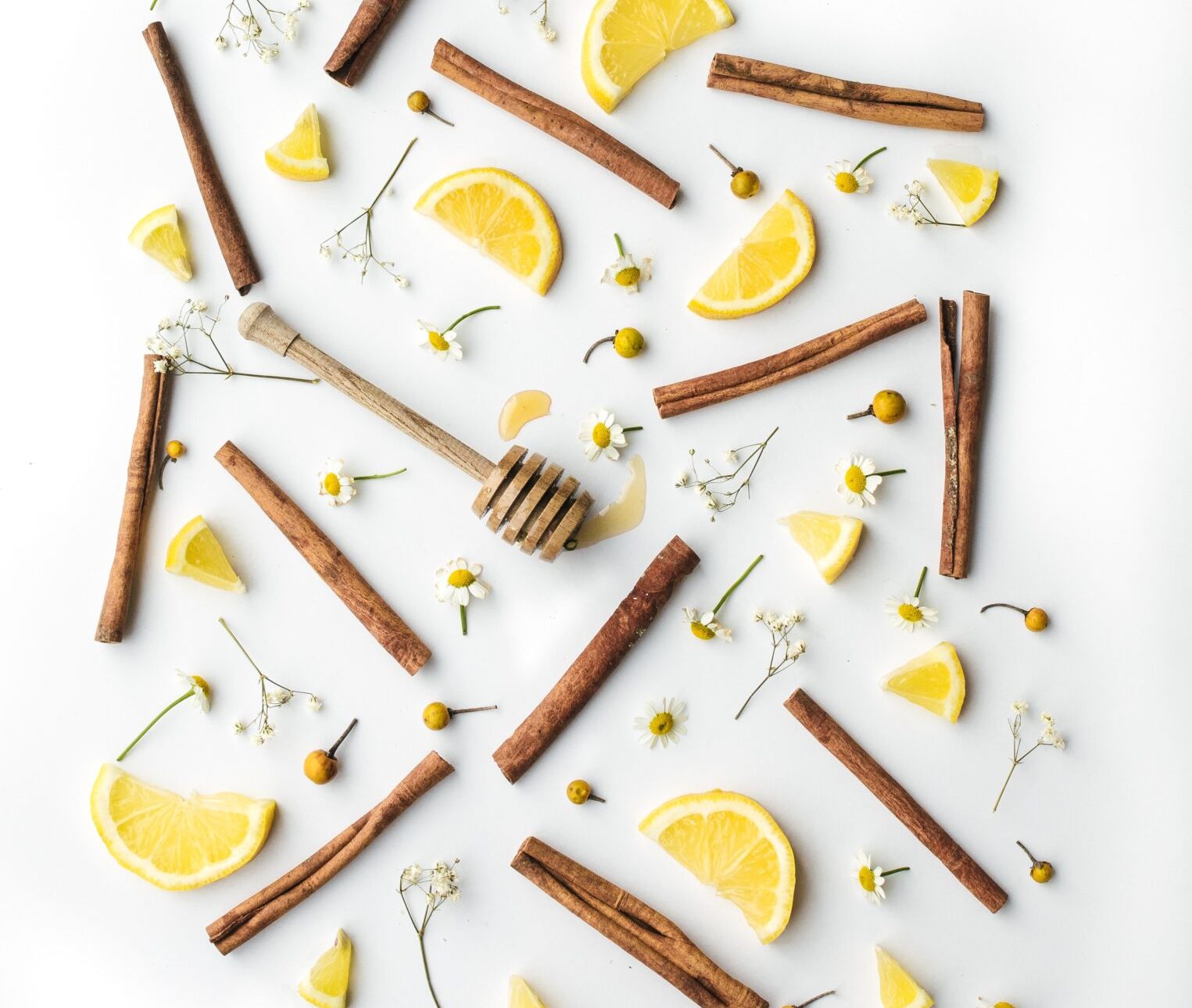What is Lemon Balm?
The “elixir of life,” according to the Swiss physician Paracelsus (1493-1541), lemon balm or Melissa Officinalis, has been a popular herb in gardens for centuries. It belongs to the mint family and can be eaten or drank to aid fevers, digestive issues, colds, headaches, anxiety, and more. During the 13th century, it was the sworn breakfast tea of Llewelyn, Prince of Glamorgan, who credited the drink with reaching the grand old age of 108. More recently, preliminary studies have indicated it could help with the onset of Alzheimer’s. This marvelous herb, lemon balm, has many uses, but can easily be applied to your skin to help fight a myriad of complaints.
Herbal Medicine and Lemon Balm
Lemon balm can be found as an essential oil, although it is expensive because distilling the herb is difficult and requires a significant amount of the plant. More often, lemon balm is found diluted in various cosmetic products. And of course, the herb can be infused with honey and hot water, which helps release the antioxidants. As with all herbs, this should be taken in moderation alongside a healthy diet, which includes staying hydrated and exercises.
A Balm for Many Occasions
The antiviral properties within the herb make it perfect for cosmetic application, especially if your skin is prone to cold sores or acne or scarring. Of course, historically, this was a typical application for lemon balm, but only recently have scientists studied the effects of this marvelous herb on skin conditions.

In 1999, a German study compared lemon balm cream with placebo on 66 individuals who were prone to chronic cold sores (herpes simplex labialis). The individuals applied a lemon balm cream four times a day for five days, and those who used the cream noticed an improvement on the spot, compared with the placebo group. Furthermore, the lemon balm appeared to reduce the symptoms of the cold sores and shorten the healing period. Which led the researchers to believe if applied to the area, it could prolong the time between severe sore breakouts- for those who are frequently afflicted with the virus.
The Astringency of Lemon Balm Goes beyond Cold Sore Healing
For acne sufferers or those with a propensity for blackheads or large pores, lemon balm can help. The herb contains monoterpenes and di-terpenes, both of which are antibacterial and help fight acne, particularly cystic acne. In an Iranian study, the group that used a diluted lemon balm oil mixture on their skin saw a 92% recovery in their overall skin conditions. The study believed that it wasn’t just the active ingredients in a lemon balm that assisted in the patients’ recovery, but also the stress-reducing properties of the plant that calmed the users down mentally, as they cared for their skin. As stress is a component of acne, it is crucial to take the time to relax and breathe, in an attempt to calm your skin mentally. Of course, healthy skin is more than just an infusing of lemon balm, but the herb does assist an already healthy diet.
Like CBD oil, the antioxidants in lemon balm also work well at reducing redness and scarring from chickenpox, shingles, and acne. One of the benefits noted from the previously mentioned Iranian study on acne was the herb reduced inflammation and helped the scars heal better than more conventional medicine. This scar healing property makes the herb extremely useful for a variety of minor skin issues. Still, it is also found in products catering to postpartum skin issues, such as stretch marks and minor scarring.

Looking for Smooth, Glowing Skin, Yet Dealing with Wrinkles?
A Japanese study from 2017 noted a connection between smoother skin and lemon balm when the lemon balm was drunk as a tea, a typical drink in Japan. The properties in this herb, mainly the anti-glycation, which reverses signs of aging by returning the skin cell to its natural state and shape, caused the cheek skin of the subjects to be improved within six weeks. This study indicates that lemon balm extracted with the aid of hot water can help fight tissue damage in skin and blood vessels in healthy adults.
As with any natural supplement, there are the possibilities of side effects.
This plant can cause a variety of side effects, such as headache, nausea, stomach pain, upset stomach (although it can also calm an upset stomach if taken with food) dizziness, wheezing, skin irritation, and allergic reaction. It is recommended that you consume less than 2 grams of lemon balm per day and avoid the herb or ask a doctor’s advice if you are nursing, pregnant, or taking medicines for glaucoma, thyroid disorders, or sedatives. It is recommended that this lemon-scented herb never be taken for long term problems, or use it for three weeks continuously, and then take a week-long break between uses.
A Balmy Herb Indeed!
Lemon balm is a marvelous herb, particularly for skin issues, and the appropriate use can dramatically improve not just your skin, but also your entire outlook on life. What an incredibly excellent herb!



